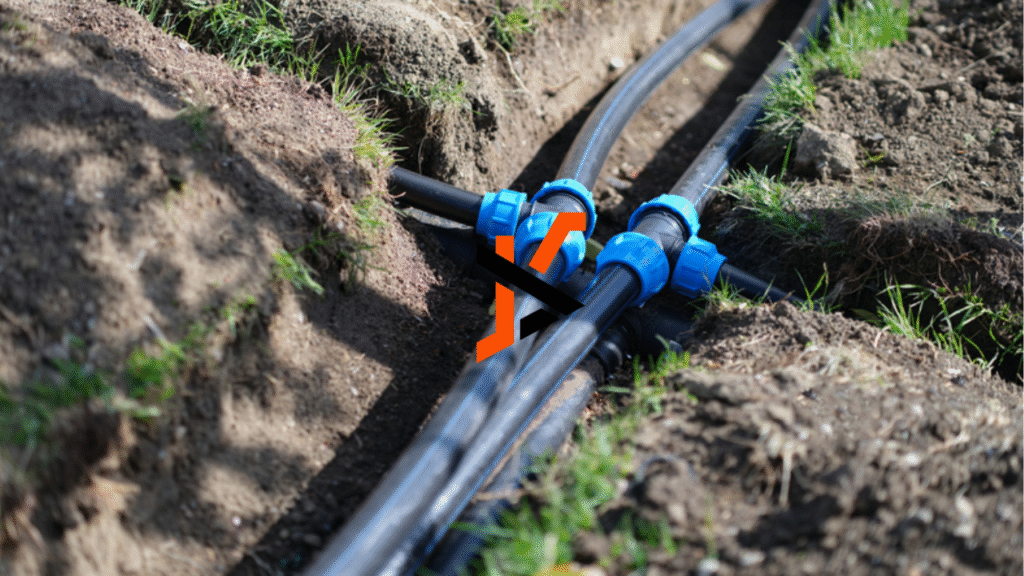Your home’s plumbing system is vital in your daily life, ensuring water flows where and when you need it. But when trouble arises, ignoring minor issues can lead to costly disasters. Spotting early signs of plumbing problems can save you time, money, and stress. Several signs indicate that your home’s plumbing system may need immediate attention.
Slow drains that just won’t clear
A slow drain might seem minor, but it’s often a sign of something more serious. Clogs can form from soap scum, grease, or even tree roots invading your pipes. If multiple drains in your home are backing up simultaneously, it could mean a blockage deep within your plumbing system.
Persistent issues like these require professional intervention. The longer you wait, the larger the blockage can grow. Calling experts like American Home Water & Air can ensure any drainage problems are identified and addressed promptly.
Low water pressure in your faucets and showers
Is your shower barely producing a trickle? Low water pressure often points to problems like mineral buildup in your pipes, hidden leaks, or a failing pressure regulator. If only one fixture is affected, the issue might be isolated, but if it’s happening throughout your home, it’s time to act fast.
Ignoring low water pressure risks further pipe damage, especially if hidden leaks are the culprit. If you notice washers not spinning fully or faucets dribbling instead of flowing, consult a plumbing professional immediately.
Odd noises from your pipes
Pipes may seem silent, but when they start to make noises, it’s their way of telling you something’s wrong. Banging, clanging, or rattling sounds (commonly called water hammer) could indicate unsecured pipes or sudden pressure surges.
Whistling or screeching noises mean mineral deposits partially block the flow in your pipes. Addressing these early can prevent burst pipes or water pressure irregularities.
Unpleasant smells around drains
An unpleasant smell wafting from your drains is more than a nuisance. Often, it’s caused by a clogged sewer line or a dry P-trap. A P-trap is the U-shaped pipe under your sink, designed to hold water and stop sewer gas odors from creeping into your home.
Ignoring foul odors can allow toxins or harmful bacteria into your living space, so it’s essential to investigate the source of the smell as soon as it’s noticed.
Visible signs of leaks
One of the most obvious signs of plumbing trouble is water where it shouldn’t be. Check your ceilings, walls, and floors for discoloration, mold, or damp spots. These are telltale signs of hidden leaks that could compromise the structural integrity of your home.
Even small water stains can indicate a larger issue within your plumbing. Don’t hesitate to act when you spot them to prevent damage from escalating.
A sudden spike in your water bill
Unless your household water usage has drastically increased, an unusually high water bill could point to hidden plumbing leaks. Dripping faucets, running toilets, or buried leaks in underground pipes can lead to sky-high water consumption (and costs).
Regular monitoring of your water bill can help catch these problems early. If you notice an unexplained jump, it’s worth investigating further and seeking professional help.
Discolored or cloudy water
Your water should always run clean and clear. If you notice discoloration like brown or rusty-colored water, it might indicate corroded pipes or sediment buildup in your water heater. Similarly, cloudy or milky water can signal excess air or contamination.
These issues affect water quality and can harm your home appliances and your family’s health over time.
Frozen or burst pipes in winter
Winter poses significant risks to your plumbing system if pipes aren’t properly insulated. Frozen pipes can burst, leading to water damage that’s expensive to repair.
Take immediate action if you notice frosty spots on exposed pipes or experience no water flow during freezing weather. Preventative measures like pipe insulation and regular professional checks can save you from a winter plumbing nightmare.
Constantly running toilets or dripping taps
A running toilet may seem harmless, but it wastes gallons of water daily and can inflate your water bill quickly. Similarly, dripping taps may seem like a minor issue, but over time, they add up significantly in water waste.
These problems are usually simple to fix when addressed promptly. Ignoring them, however, can lead to operational inefficiencies or larger plumbing concerns.
Standing water in your yard
If you find puddles of water in your yard even though it hasn’t rained, you might have a cracked sewer line or a leaking underground pipe. Other warning signs of this issue include foul smells in your yard or sudden patches of overly lush grass.
A broken pipe beneath your yard’s surface needs immediate attention, as it could lead to sewage leaks or foundational damage if left untreated.
What to do when you notice plumbing issues
Spotting these signs early is the first step, but taking immediate action is crucial to prevent further damage. Here’s what you can do when you suspect a plumbing issue in your home:
- Avoid DIY fixes for complex problems
While some small fixes (like replacing a washer in a faucet) can be done on your own, larger issues like pipe leaks or clogs require professional expertise.
- Schedule an inspection with a licensed plumber
Professional assessments ensure the accurate diagnosis of plumbing problems. Reach out to trusted professionals with the tools and skills to resolve underlying issues efficiently.
Prevention is key
To minimize plumbing issues, adopt preventative habits like regular inspections, avoiding dumping grease down drains, and insulating exposed pipes. These simple actions can save you significant time and money in the long term.
Conclusion
When it comes to plumbing, waiting can lead to extensive problems and larger repair bills. If you’ve noticed any of the above signs, now is the time to act. Reach out to expert plumbers to identify and resolve problems before they become costly disasters.
Don’t wait for a simple leak to become a major flood. Make the call today and safeguard your home.

